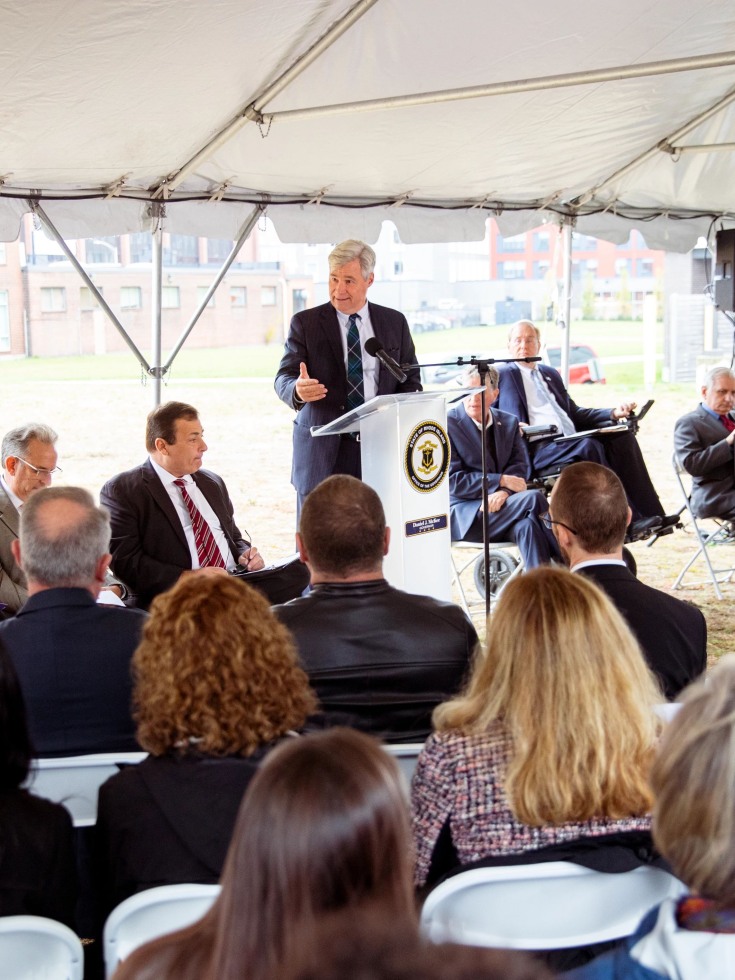PROVIDENCE, R.I. [Brown University] — To celebrate the groundbreaking for a 212,000-square-foot building that will house a new state health lab, life sciences labs for Brown University, and additional biotechnology space on former I-195 land, Brown officials joined Rhode Island Governor Daniel McKee, the state’s entire congressional delegation and a packed lineup of government, health and medicine leaders on Monday, Oct. 24.
Dr. Megan Ranney, deputy dean of Brown’s School of Public Health, represented the University, noting the importance of the new space in helping Brown and other researchers to tackle “the challenges of illness, aging, biology, cancer, addiction, firearm violence and public health.”
And elected leaders including U.S. Rep. David Cicilline underscored the importance of investing in the life sciences to advance high-impact biomedical and public health research, while also spurring the economic vitality of Providence. Cicilline noted Brown’s long track record of investment in the city and the University’s integral contributions to the redevelopment of Providence’s Jewelry District, through projects including South Street Landing, the Innovation Center at 225 Dyer St. and a planned integrated life sciences building.
“When I was first elected mayor [in 2003], we were starting to talk about the opportunities that this 195 land would present in terms of the dynamism and the economic development that would come,” Cicilline said. “The partnership with Brown University has allowed that to happen at a really accelerated pace… [This project] is going to ensure the people who are in this facility — the great academics, researchers and innovators — are going to have state-of-the-art facilities to develop the new treatments and the new materials and the new methodologies that are going to help improve the health and well-being of the citizens of our state.”
